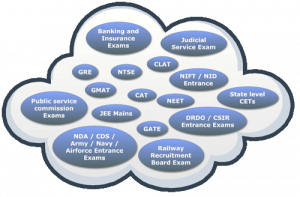Best Books to Read in 2023
Best Books to Read in 2023 Are you a bookworm or a bibliophile, if yes, then this is the ...
Instrumentation engineering is a specialized branch of engineering that deals with the study of measurement and control of various processes in industries. Graduates in this field are equipped with knowledge and skills related to instrumentation, control systems, automation, and more. This article explores the diverse Career Paths After Instrumentation Engineering, highlighting the industries they can work in, the job roles they can pursue, and the prospects in this field.

Read also: Career Paths After Electronics and Communication Engineering 2024
Instrumentation engineers play a crucial role in the oil and gas industry by designing, installing, and maintaining control systems for drilling, production, and refining processes. They can work as instrumentation engineers, control systems engineers, or process control engineers in this industry.
In the automotive industry, instrumentation engineers are involved in designing and implementing control systems for vehicles, ensuring their efficiency and safety. They can work in roles such as automotive control engineer, vehicle dynamics engineer, or test engineer.
Instrumentation engineers are essential in the power generation industry, where they design, install, and maintain control systems for power plants. They can work as power plant instrumentation engineers, control systems engineers, or maintenance engineers in this sector.
In the pharmaceutical industry, instrumentation engineers are involved in designing and maintaining control systems for the manufacturing processes of pharmaceutical products. They can work as automation engineers, process control engineers, or validation engineers in this industry.
Instrumentation engineers are in demand in the manufacturing industry, where they design and implement control systems for various manufacturing processes. They can work as manufacturing engineers, automation engineers, or quality control engineers in this sector.

As an instrumentation engineer, you will be responsible for designing, developing, and maintaining control systems for various processes. You will also be involved in troubleshooting and ensuring the efficiency of these systems.
Control systems engineers are responsible for designing and implementing control systems for machines and processes. They work closely with other engineers to ensure the smooth operation of these systems.
Automation engineers design and implement automated systems that control machinery and processes. They are responsible for improving efficiency, reducing costs, and ensuring safety in industrial environments.
Process control engineers are responsible for designing and implementing control systems for industrial processes. They ensure that these processes operate efficiently and safely, meeting all regulatory requirements.
Maintenance engineers are responsible for ensuring the proper functioning of equipment and machinery in industrial settings. They perform regular inspections, troubleshoot issues, and schedule maintenance activities to minimize downtime.

The field of instrumentation engineering offers promising prospects, with a growing demand for skilled professionals in various industries. With advancements in technology such as the Internet of Things (IoT) and Industry 4.0, the role of instrumentation engineers is becoming increasingly important. Professionals in this field can expect competitive salaries, opportunities for career advancement, and the chance to work on innovative projects that have a significant impact on society.
Instrumentation engineering offers a wide range of Career Paths After Instrumentation Engineering in diverse industries such as oil and gas, automotive, power generation, pharmaceuticals, and manufacturing. Graduates in this field can pursue Career Paths After Instrumentation Engineering such as instrumentation engineering, control systems engineering, automation engineering, process control engineering, and maintenance engineering. With promising future prospects and the opportunity to work on innovative projects, instrumentation engineering is an exciting field for aspiring engineers in Career Paths After Instrumentation Engineering.
Vani Jha is a creative content writer with over 2 years of experience in producing engaging, informative, and well-researched... (Full bio)

Best Books to Read in 2023 Are you a bookworm or a bibliophile, if yes, then this is the ...

In the exhilarating journey of 10 Proven Memorize Techniques for Students learning, memory is your trusty companion. Whether ...

Top 20 toughest exams in world is about exams in the world that required very hard work to ...

Top 20 toughest exams in India - Exams are the perhaps most toughest moments for any student. A ...

Top 20 Colleges of DU Getting admissions to the top 20 colleges of DU is a dream for every ...

Top 20 NITs of India - Amongst the 31 NITs in India, today, we are talking ...

Here are the Top 12 Artificial Intelligence in Mumbai. Artificial intelligence (AI) refers to the simulation of human ...

As you stand on the Best Science Courses after 12th academic journey, the realm of science beckons, offering ...
Millions of students have entrusted CollegeChalo to facilitate their seamless and smooth admission process to their dream colleges and universities. With CollegeChalo, you can gain a competitive edge by easily accessing exam and course details to stay ahead of the admission journey. What are you waiting for?
Search your dream college